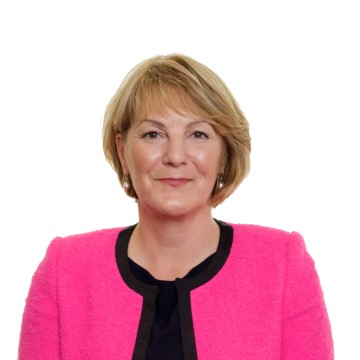18 October 2022
The then Chancellor of the Exchequer’s fiscal statement on 23 September 2022, branded as The Growth Plan 2022, set off a chain of events that the UK is still experiencing and may be feeling the effects of for some time. The dust may not yet have settled completely, but we can now take a look at the original announcements and subsequent developments, and can consider what might happen next.
Original announcements
In what was originally expected to be a ‘mini-Budget’, the Growth Plan included a number of proposed tax cutting measures, as well as significant financial support to restrict domestic and commercial energy prices. According to the government, the tax measures were intended to drive growth and productivity and to encourage investment, although in the absence of detailed forecasts it remained to be seen whether they would have the desired effect.
Subsequent developments
The announcements resulted in immediate significant falls in the value of sterling (against the US dollar and other major currencies) and gilts (bonds issued by the UK government), with this initially widely reported to have mainly been a market reaction to the abolition of the additional rate of income tax, and later extended to concerns over the lack of clarity regarding how the proposed tax cuts and energy price cap would be funded. This, in turn, led to the Bank of England announcing that it would acquire up to £65bn of gilts to ensure stability of the UK financial system due to concerns that certain pension funds were at risk of collapse because of the fall in the value of gilts, allowing sterling exchange rates to recover but leaving long-term UK effective interest rates significantly higher than before. These events, and the resulting political pressure, resulted in a new Chancellor being appointed on 14 October 2022 and the proposed tax changes giving rise to the majority of the financial impact of the mini-Budget being reversed, as set out below.
| Measure announced on 23 September 2022 | Status as at 17 October 2022 |
| Bring forward the previously intended reduction of the basic rate of income tax, from 20% to 19%, from April 2024 to April 2023. | The basic rate of income tax will remain at 20% indefinitely, with a reduction only taking place when economic conditions allow for it and such a change is affordable. |
| Scrapping the health and social care levy due to take effect from April 2023 and the current temporary 1.25% increase in the rate of National Insurance contributions from November 2022. | This change will go ahead, as announced on 23 September. |
| Reverse, from April 2023, the 1.25 percentage point increase in the tax rates that apply to dividend income, which took effect in April 2022. | The rates that have applied to dividend income since April 2022 will remain in place beyond April 2023. |
| Abolish the 45% additional rate of income tax from April 2023. | The 45% additional rate of income tax will be retained beyond April 2023. |
| Repeal the 2017 and 2021 reforms to the IR35 off-payroll working administrative rules from April 2023. | The 2017 and 2021 IR35 reforms will remain in place. |
| Maintain the main rate of corporation tax, which had been scheduled to rise to 25% on 1 April 2023, at 19%. | The main rate of corporation tax will now rise from 19% to 25% on 1 April 2023, as previously enacted. |
| Maintain the annual investment allowance (AIA) at its current temporary level of £1m, which was previously scheduled to be reduced to £200,000 from April 2023. | This change will go ahead, as announced on 23 September. |
| Extend the seed enterprise investment scheme (SEIS) from April 2023, allowing companies to access £250,000 of SEIS investment, a two-thirds increase on the previous limit, and for the maximum amount that can be invested by individual investors to be doubled to £200,000. | This change will go ahead, as announced on 23 September. |
| Increase, from April 2023, the value of company share option plan (CSOP) options that can be issued to £60,000, double the current £30,000 limit. | This change will go ahead, as announced on 23 September. |
| Immediately increase the nil rate band for stamp duty land tax (SDLT) for residential property to the first £250,000 consideration payable. | This change will go ahead, as announced on 23 September. |
| Immediately increase the threshold at which first-time buyers begin to pay SDLT on residential property from £300,000 to £425,000, and the maximum value of a property on which first-time buyers’ relief can be claimed, from £500,000 to £625,000. | This change will go ahead, as announced on 23 September. |
| Introduce a new VAT-free shopping scheme for non-UK visitors to Great Britain. | This scheme will not be implemented. |
| Freeze alcohol duty rates from 1 February 2023 for a year. | This freeze will not be implemented. |
Whilst SDLT applies to property transactions in England and Northern Ireland, devolved property transaction taxes apply in Wales and Scotland. On 27 September 2022, the Welsh government announced changes to land transaction tax (LTT) rates and bands for Welsh residential property. From 10 October 2022, the LTT nil rate band increased, from £180,000, to cover the first £225,000 consideration payable, with rates on consideration between £225,000 and £400,000 increased (from the previous 3.5%to £250,000 and 5% to £400,000) to 6%. Transitional rules have been implemented for buyers who exchanged contracts before 10 October 2022 on transactions completing after this date, allowing them to elect to apply the rates and bands that applied before 10 October 2022.
What happens next?
As yet, the Scottish government has not confirmed what, if any, changes it will make to land and buildings transaction tax (LBTT), the property transaction tax that applies to Scottish land and property, and to Scottish rates of income tax for earned, pensions and property income of Scottish taxpayers, which have already diverged from the rates that apply in the rest of the UK. The Scottish government has confirmed that an emergency budget review will be published in the week commencing 24 October 2022, which may include details of any changes to LBTT and Scottish income tax rates, although the reversal of the proposed changes to the UK income tax rates, as set out above, may result in fewer changes than otherwise might previously have been expected.
A further UK-wide fiscal event is scheduled to be held on 31 October 2022, described as the government’s Medium-Term Fiscal Plan, during which the new Chancellor will confirm how the government intends to reduce public debt as a proportion of gross domestic product (GDP) in the medium term. This further fiscal event will be supported by forecasts prepared by the Office for Budget Responsibility, the absence of which was widely reported as a major cause for concern in respect of the 23 September fiscal event.
Although much uncertainty remains on the detail, it seems unlikely that we will see reversals of the remaining tax changes announced in September. Instead, the political discussion is expected to move onto how the remaining tax changes and energy price support measures will be funded, with the Chancellor indicating that he will announce difficult decisions over freezes or cuts to government spending. In particular, there has been speculation regarding whether welfare spending will increase in line with inflation. The October fiscal event therefore appears unlikely to include further significant tax announcements, but whilst announcements on further changes to tax rates and bands are doubtful, the Chancellor may announce reviews and/or consultations on particular aspects of the UK tax regime to support the government’s stated continuing growth agenda, including further consultation on potentially significant changes to the capital allowances regime, on which it sought initial views during the summer.
In addition, the Chancellor has confirmed that a full Budget event will be held in early 2023, in which decisions on some of the more detailed potential tax changes consulted on during 2022 are expected to be announced.
For more information, please get in touch with David Barton or your usual RSM contact.
For reference, please find the previous announcement on 23 September 2022 here.

















